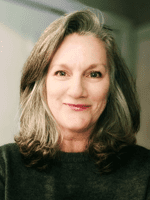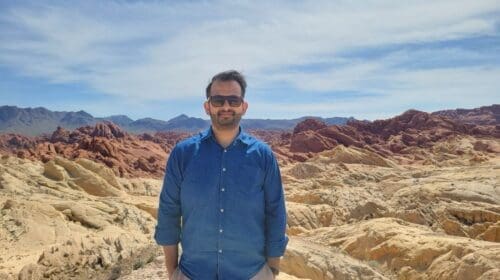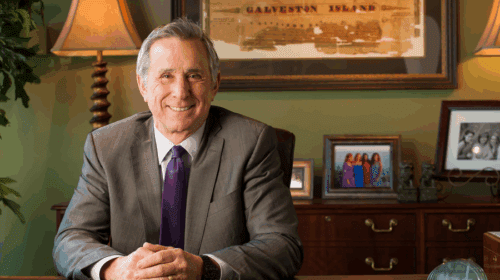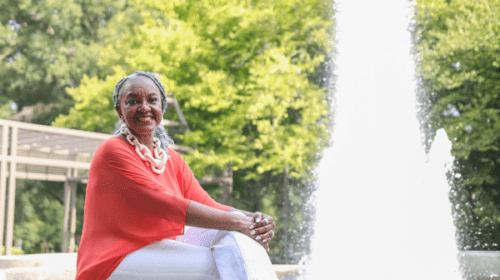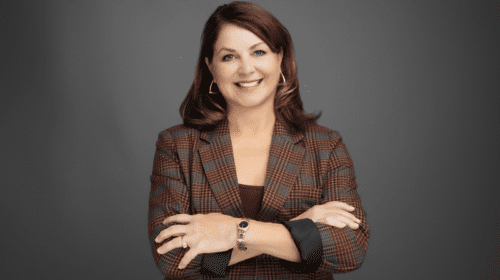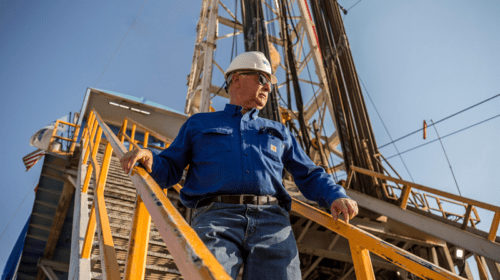Rebecca Ponton: What motivated you to begin thinking about a solution to chemical and plastic pollution, and form the company that would eventually become Sequana? Was there a specific incident or moment?
Liz Madaras: Since the dawn of the plastic era, we have produced 8.3 billion tons of plastic. That is 27 times the weight of the entire human race. We have increased our plastic production, with a recent 400 million ton/annum production rate. Of this, more than 250 million tons is plastic waste. Despite recycling efforts, 72 million tons still end up in landfills and 77 million tons leak into the environment. This not only destroys marine environments, but landfills contaminate sources of drinking water.
 We study plastic degradation. We have found something very disturbing: Even in cases where toxic chemicals were banned, they were still leaching into products that we get into contact with every day. The data indicates that most coffees that we drink, take-away food that we eat, and shampoo that we use might not be safe. We have started asking questions and decided to fight this danger.
We study plastic degradation. We have found something very disturbing: Even in cases where toxic chemicals were banned, they were still leaching into products that we get into contact with every day. The data indicates that most coffees that we drink, take-away food that we eat, and shampoo that we use might not be safe. We have started asking questions and decided to fight this danger.
RP: We know that plastics aren’t good for the planet, but everywhere you turn we are surrounded by plastic and plastic products. What is the biggest problem – or even danger – from plastics?
LM: Plastic is more than meets the eye. Firstly, of course it’s a waste issue, but it’s also a global warming, social equity and a public health issue. Humans invented plastic and nature does not recognize it, so it’s only logical that nature by itself has no means to integrate plastic back into the ecological cycles of the globe. Additives make polymers into plastics: lightweight, durable and versatile. Heavy metals, flame retardants, phthalates, BTEXs, bisphenols and fluorinated compounds are directly associated with plastics production. These compounds can cause cancer, neurological disorders, infertility and impotence. No one is protected from chemical leachate. Phthalate exposure is linked to early death, particularly due to heart disease and causes 91,000 to 107,000 premature deaths a year among people ages 55 to 64 in the U.S. alone. BPA is directly linked with childhood obesity and heart disease. When plastic breaks apart, it forms microplastic. The presence of microplastics has been detected in maternal human placentas.
Plastic is also a contributor to global warming, as it generates greenhouse gas (GHG) emissions at every step of its life cycle, from extraction to waste.
As the waste management of plastic is usually done near low income communities they are disproportionately affected by plastic waste. The most common ways of plastic disposal in the U.S. are landfilling and burning plastic waste. These landfills and incinerators release various types of harmful emissions and greenhouse gasses. Low-income communities and communities of color feel the impacts most heavily.
RP: Sequana’s mission statement is “Make Plastics Safe!” How do you do that?
LM: We have two main pillars of development: Aiding plastic phase outs and developing solutions for the issues that are already there. Our idea of integrating plastic waste into the circular economy by imitating nature and breaking it down microbiologically has taught us that this concept is only possible if we design our plastic raw materials more consciously. Based on our research, we have discovered alarming facts: The use of toxic chemicals/additives in everyday plastic products can be harmful to human and environmental health and hinder the possibility of a safe circular economy.
Our mission is to create truly safe, non-toxic biodegradable plastics, that do not contain hazardous additives. Our conscious design covers all stages of the life cycle of plastics, so that not only during use but also during complete decomposition, hazardous additives do not enter the human body or the environment. In addition, our solution uses bio-waste/food by-products.
RP: What can those of us who are not scientists do to help eliminate the plastics problem and make the planet safer for all of us?
LM: Reduce, reuse, recycle is always great advice, with emphasis on the first two, when the material is still in your personal control. I would also add “replace” – use new, novel materials wherever possible, especially if it’s single use packaging!
RP: Sequana is producing sustainable bioplastics from organic waste (mainly coffee), so here is a “fun” question – do you drink coffee and, if so, how do you take it (black, with cream and sugar, iced, something fancy?).
LM: Cappuccino all the way!
Rebecca Ponton has been a journalist for 30+ years and is also a petroleum landman. She is the author of Breaking the GAS Ceiling: Women in the Offshore Oil and Gas Industry (Modern History Press; May 2019). She is also the publisher of Books & Recovery.
Oil and gas operations are commonly found in remote locations far from company headquarters. Now, it's possible to monitor pump operations, collate and analyze seismic data, and track employees around the world from almost anywhere. Whether employees are in the office or in the field, the internet and related applications enable a greater multidirectional flow of information – and control – than ever before.


